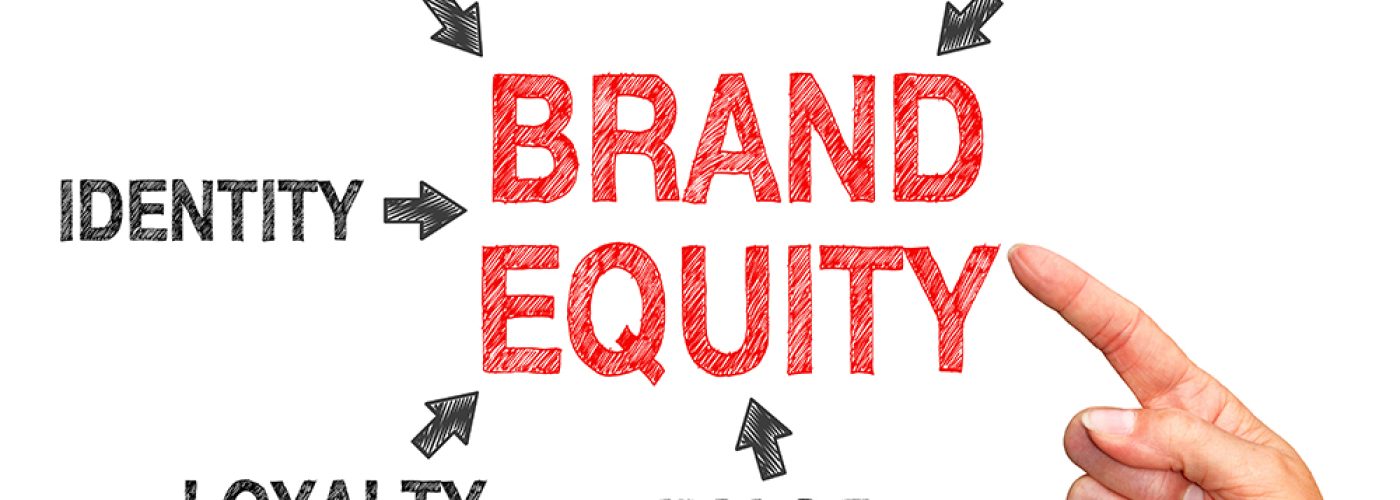Branding used to be about developing the perfect logo or slogan for your business, and while these things are still important, today’s marketing experts take a different view. The prevailing wisdom now is that branding is mostly concerned with how your brand is perceived on a gut level. Does the mention of a particular brand make you feel happy, safe, indifferent, annoyed or amused?
Subconscious positive associations are a powerful tool, especially for construction companies. What if the mere mention of your company could carry an automatic connotation of reliable, high quality, professional construction work? What if the brand equity of your firm could make your customers believe that your company was the obvious, go-to choice for all building contracts?
What is brand equity?
Brand equity is essentially the concept that a familiar brand will have an advantage over lesser-known competitors due to its customers conflating recognition with quality. Faced with two or more purchase options, the vast majority of consumers will assume that the brand or service they’ve heard of has a reputation for superiority – and there are few industries where perceived low quality is as harmful as construction.
Brand equity is related to the psychological cognitive bias called the “halo effect” – the tendency of most people to make strong unconscious assumptions based on unrelated information. For example, studies show that many of us subconsciously assume that attractive and well-dressed people have positive character traits such as kindness and good humour.
In branding jargon, the term “halo effect” also has another meaning tied to brand equity – the propensity of a customer to assume that a good experience with one product or item reflects on the entire brand. If you’ve had good experiences with a Samsung phone, chances are you’ll be more likely to assume that their TVs are good, too. This latter definition is less cognitive bias and more common sense, but the message is clear: brand equity can be a powerful asset for putting your business on a pedestal in the customer’s mind.
Developing brand equity in construction
The first step, of course, is to make sure your company really does deliver high quality, dependable construction services! If you get a reputation for second-rate construction work, the customers are going to catch on and stop calling, as your business name will become a byword for poor results (this is known as negative brand equity). If you consistently do great work your company will naturally start to develop a reputation for excellence, with a large roster of happy clients and a website overflowing with positive testimonials – but you still need to make sure people have heard of you.
An important facet of brand equity is brand recognition. Faced with the choice between a Superdry jacket, or a no-brand coat from a market stall, most people would prefer the familiar brand with its presumed higher quality. In order to leverage this principle, then, you need a widely recognised name.
For a construction business, this needn’t be at Coca Cola and Burger King levels of public familiarity. Rather than trying to become a household name for the general public (which would be both unnecessary and nearly impossible), the goal is to become very well-known in certain circles and selected groups. By targeting your marketing efforts at those specific people you want to work with, you can position yourself as the go-to contractor for building work.
Clarifying your business values
Brand awareness is a little different of a concept to brand familiarity, although closely related. Whereas brand familiarity means that people recognise your name, brand awareness means that they understand something about who you are and what you do (and what sets you apart from your competitors). Recognising the name Apple is one thing; knowing that they are an electronics company with a focus on innovative design is another.
It’s important for any company’s branding that they stand for something, and construction contractors are no different. Do your customers know what your core business values are? Brand awareness is about making sure that they do. Whether you want your message to be that you’re passionate about construction site safety, or that you care about the environment and sustainability, you should seek to clarify your specific ideology.
Getting the marketing message out
As well as the normal marketing channels – cold communications with potential clients, social media, search engine optimisation and so on – an oft-overlooked marketing opportunity is the hoardings that are legally required to envelop large construction sites in public areas. Why not use these giant boards to communicate something about your brand and your values to the public?
The use of large printed hoardings can plant your business name in the minds of hundreds of people who might later not even remember where they saw it – but could cause them to recognise it if they should later look for a construction contractor to help them with a project. Hoardings can essentially be a giant billboards to advertise your firm and its ethos, and by leaving them blank you could be missing out on a great opportunity to develop your brand equity. It’s not unheard of for truly artistic and creative construction hoardings to become something of a tourist attraction in their own right (such as the “melting building” hoarding that was erected in Paris in 2007), so don’t be afraid to go all-out with something bold.
In the end, making the most of brand equity could be the key to securing larger contracts and ensuring your construction company is always in demand. Taking the time to consider how your brand is perceived by customers and leverage the power of brand recognition could give you a significant advantage over your competitors.
———-
This post was contributed by PressOn, one of the UK’s leading large format digital printers. In addition to producing construction hoarding graphics, they also provide large format prints and banners for some of the UK’s leading retailers and brands.





